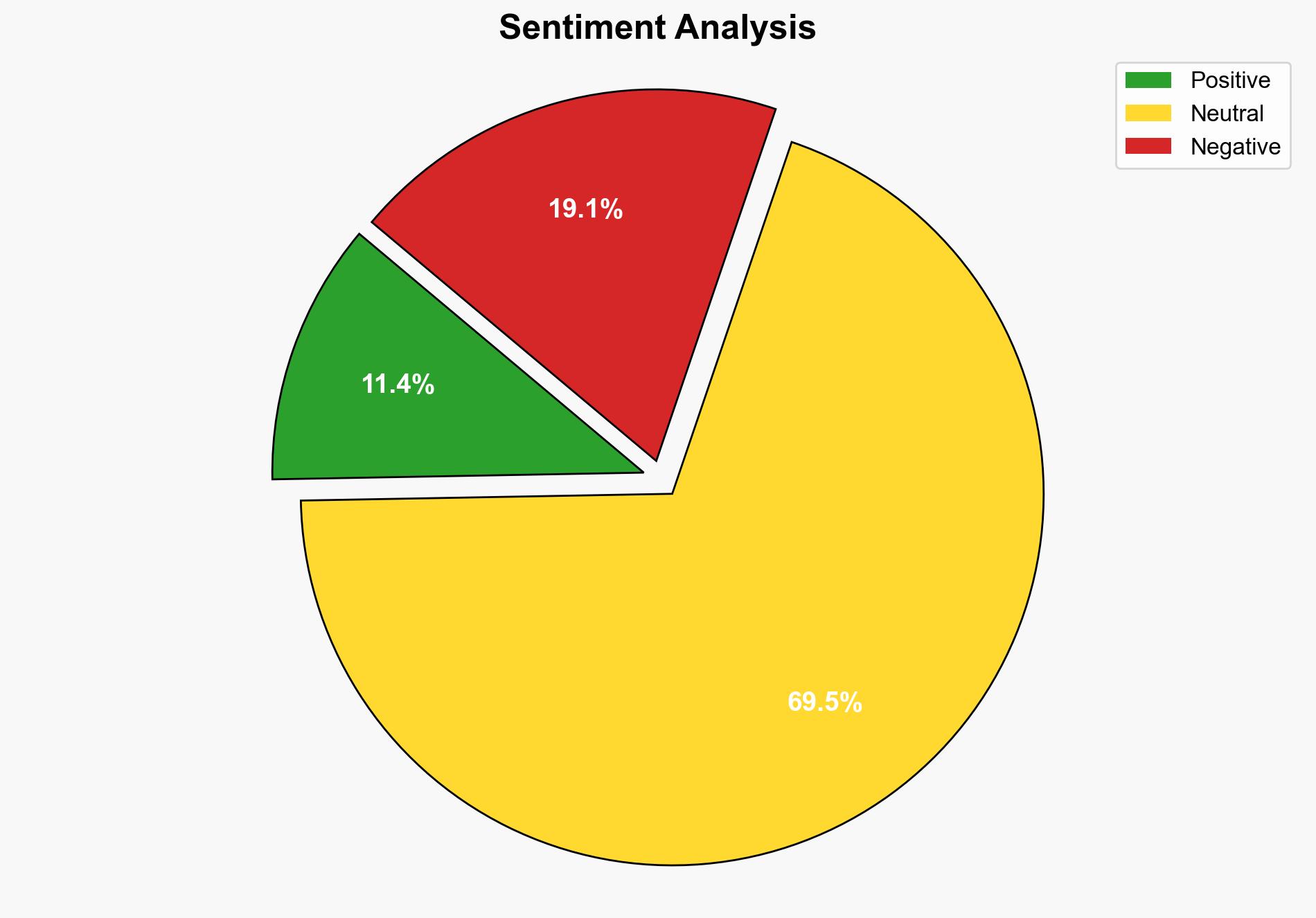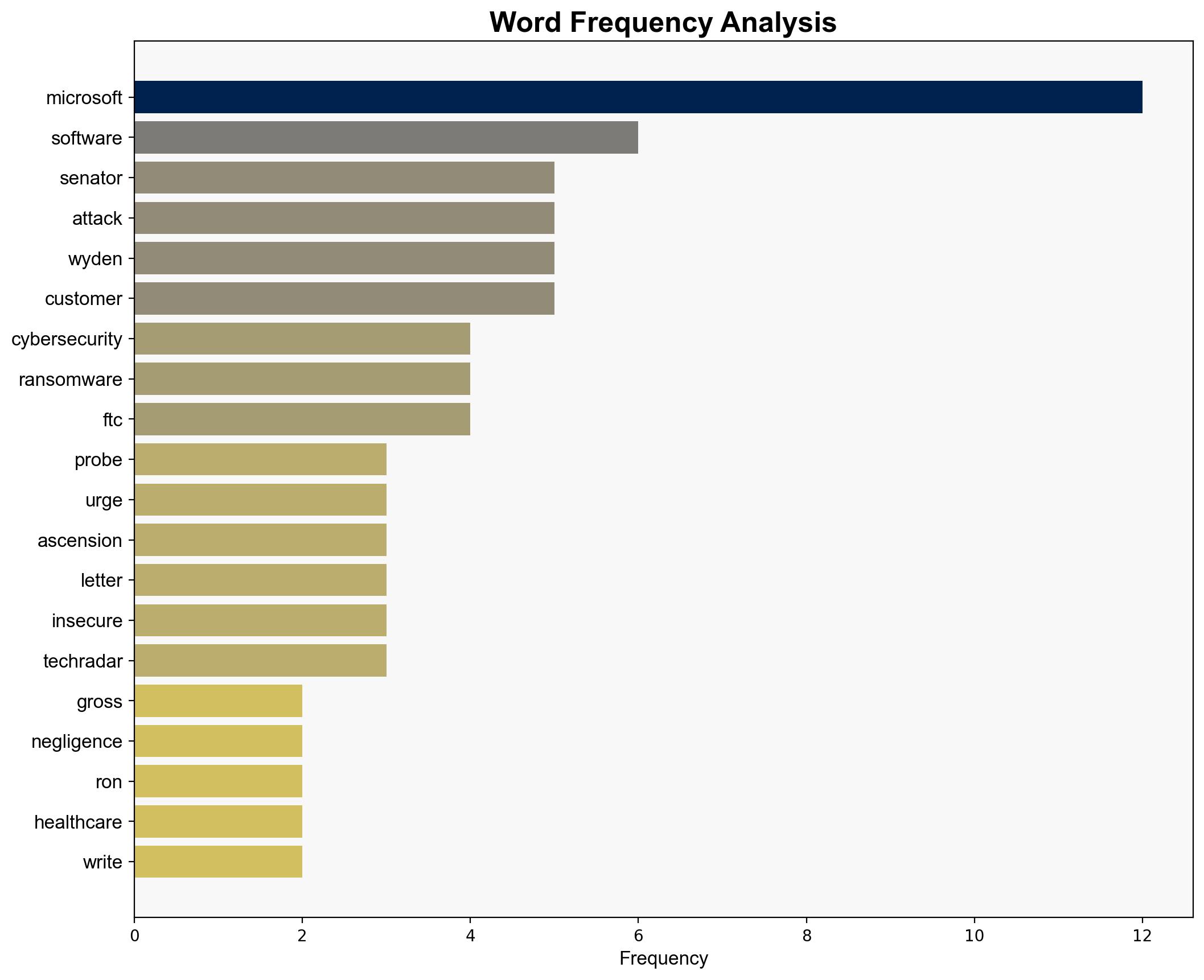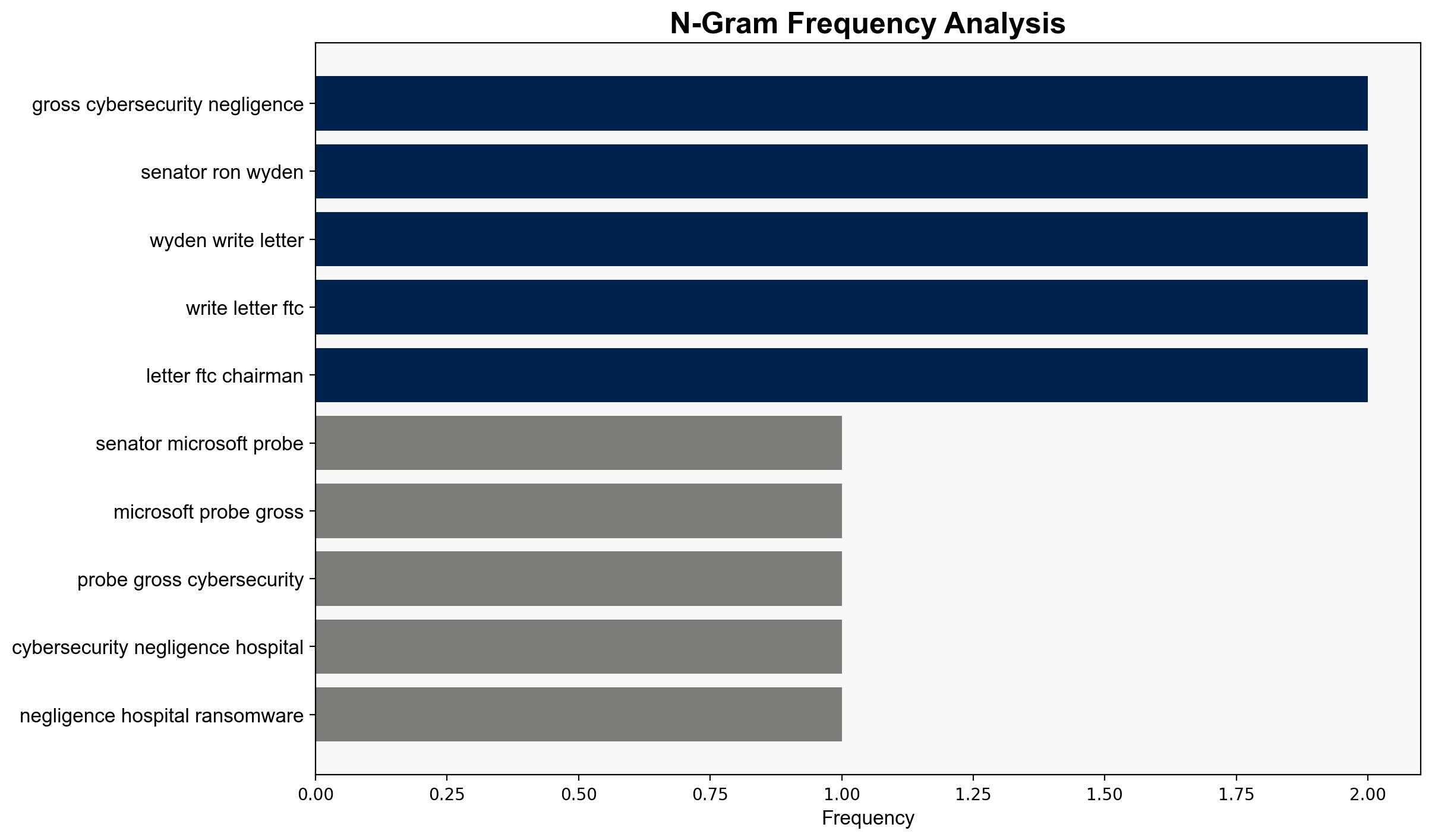US Senator says Microsoft should be probed for ‘gross cybersecurity negligence’ after hospital ransomware attacks – TechRadar
Published on: 2025-09-12
Intelligence Report: US Senator says Microsoft should be probed for ‘gross cybersecurity negligence’ after hospital ransomware attacks – TechRadar
1. BLUF (Bottom Line Up Front)
The most supported hypothesis is that Microsoft’s cybersecurity practices, particularly concerning default software settings and patch management, contributed to vulnerabilities exploited in the ransomware attacks on Ascension Healthcare. Confidence level: Moderate. It is recommended that a comprehensive investigation be conducted to assess Microsoft’s cybersecurity protocols and their impact on critical infrastructure.
2. Competing Hypotheses
Hypothesis 1: Microsoft’s cybersecurity negligence, particularly insecure default settings and inadequate patch management, directly contributed to the ransomware attacks on Ascension Healthcare. This is supported by Senator Wyden’s claims and the reported use of the Kerberoasting technique exploiting Microsoft’s software vulnerabilities.
Hypothesis 2: The ransomware attacks were primarily due to user error and inadequate cybersecurity practices at Ascension Healthcare, with Microsoft’s role being secondary. This hypothesis considers the initial infection vector as a contractor clicking a malicious link, suggesting that internal security practices were insufficient.
3. Key Assumptions and Red Flags
Assumptions:
– Hypothesis 1 assumes Microsoft’s default settings are inherently insecure and that these were not adequately addressed despite known vulnerabilities.
– Hypothesis 2 assumes that user error and internal security lapses at Ascension Healthcare were the primary factors in the attack.
Red Flags:
– Lack of detailed evidence on the specific vulnerabilities exploited.
– Potential bias in Senator Wyden’s statements, possibly driven by political motives.
– Absence of independent verification of the claims made in the letter to the FTC.
4. Implications and Strategic Risks
The implications of these hypotheses are significant for national security, as they highlight potential vulnerabilities in critical infrastructure due to software dependencies. If Microsoft’s practices are indeed negligent, it could lead to further attacks on healthcare and other critical sectors. Conversely, if internal security practices are the issue, it suggests a need for widespread cybersecurity training and policy reform within organizations.
5. Recommendations and Outlook
- Conduct a thorough investigation into Microsoft’s cybersecurity practices and their role in the Ascension Healthcare attack.
- Implement mandatory cybersecurity training for all employees in critical infrastructure sectors.
- Best-case scenario: Improved cybersecurity practices and reduced vulnerability to attacks.
- Worst-case scenario: Continued negligence leading to more severe attacks on critical infrastructure.
- Most likely scenario: Incremental improvements in cybersecurity practices following regulatory pressure.
6. Key Individuals and Entities
– Ron Wyden
– Microsoft
– Ascension Healthcare
7. Thematic Tags
national security threats, cybersecurity, counter-terrorism, regional focus





